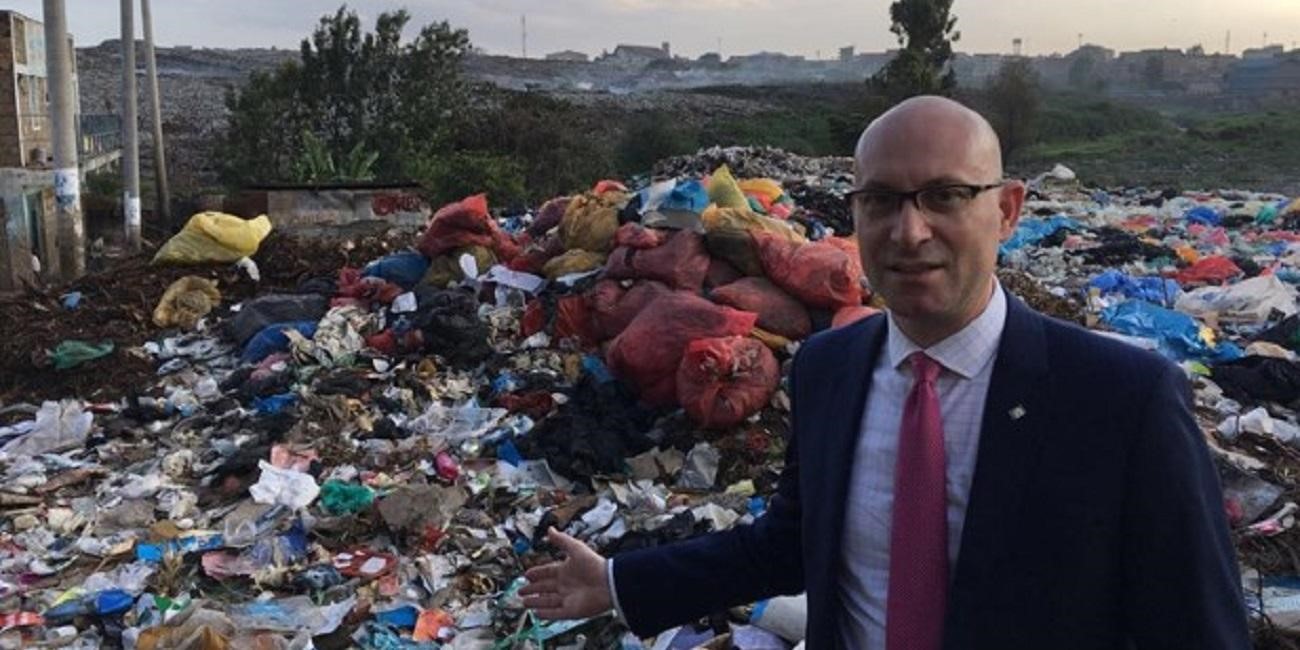A World Drowning in Plastic Pollution

water@leeds member Dr Costas Velis and his team, are involved in a major study to model the stocks and flows of plastic waste around the world. The study reveals how much is being openly burned, discarded on land and ends up in the oceans. Despite the enormous scale of the problem, the report says there are achievable solutions.
For Dr Costas Velis, the study has served notice on governments and industry of the scale of plastic pollution facing the world.
It projects that between 2016 and 2040, more than 1.3 billion tonnes of plastic will end up being dumped on land and in watercourses, unless urgent action is taken to reduce the problem.
It also found that the volume of plastic pollution would be even greater were it not for the fact that large quantities of plastic waste is burned in the open as a way of disposing of it. Open burning gives off potentially-toxic fumes and generates greenhouse gases.
This scientific inquiry has for the first time given us a comprehensive insight into the staggering amounts of plastic waste being dumped into the world's terrestrial and aquatic ecosystems. We now have a much clearer picture of the sources of the pollution and where it eventually ends up.
DR COSTAS VELIS
Dr Velis, from the School of Civil Engineering, is one of the lead academics involved in the investigation.
He and his colleagues developed a computer model that tracked the stocks and flows of plastic waste across the world. It revealed a picture of global waste systems overwhelmed by the volume of plastic waste now being generated.
When plastic waste is not collected or is mismanaged, there is a high chance it becomes pollution: instead of being disposed of properly, waste is openly burned or discarded onto land and into watercourses where it is washed or blown into the sea.
The scientists and experts conclude that there is no single magic bullet to reduce the scale of plastic pollution and call for a range of interventions from industry and governments. However, they say change is achievable using existing technology and knowhow.
A World Wide Collaboration
The aim of the project, known as Breaking the Plastic Wave, was to identify ways of eliminating or reducing the amount of plastic pollution entering the seas by 2040.
The research was funded by the US philanthropic organisation, The Pew Charitable Trusts, and conducted by four key institutions: the University of Leeds, the University of Oxford, The Pew Charitable Trusts and SYSTEMIQ. A wider group of academics, experts and industry practitioners was also involved.
The findings of the year-long study are published in the peer-review journal Science, where the assumptions that went into the computer model are described.
A separate report, Breaking the Plastic Wave, sets out the analysis in more details and describes a set of interventions that could significantly reduce the projected levels of plastic reaching the seas by 2040. The report is also available on the SYSTEMIQ website.
Researchers at Leeds were involved in analysing the role that waste management systems play in reducing plastic pollution - and the problems that emerge when people are not connected to formal waste collection systems or when waste collection systems are mismanaged. Read more about the Leeds research.
The University and Dr Costas Velis have a strong research record in identifying ways to deal with plastic pollution in the seas.
Dr Velis chairs the International Solid Waste Association's task force on marine litter. Read more about the work of his research team at the University.
For an extended article on this work see - Spotlight article.
